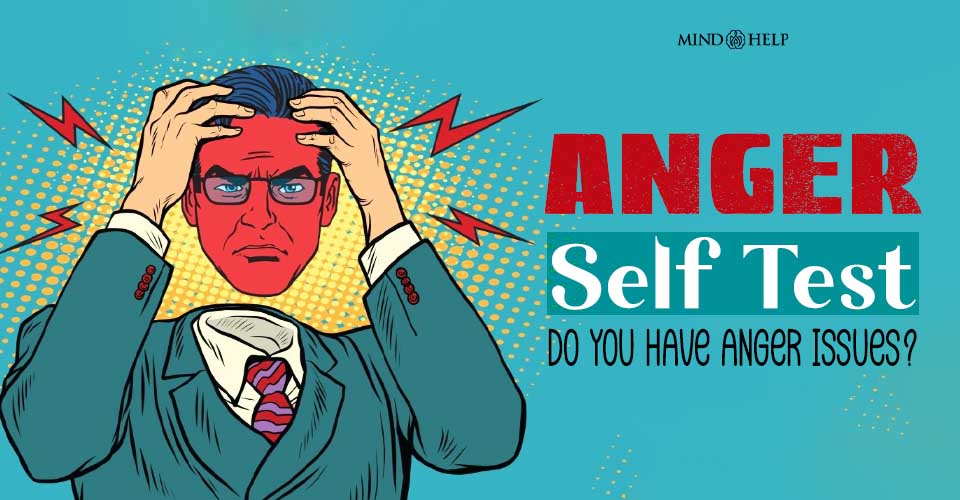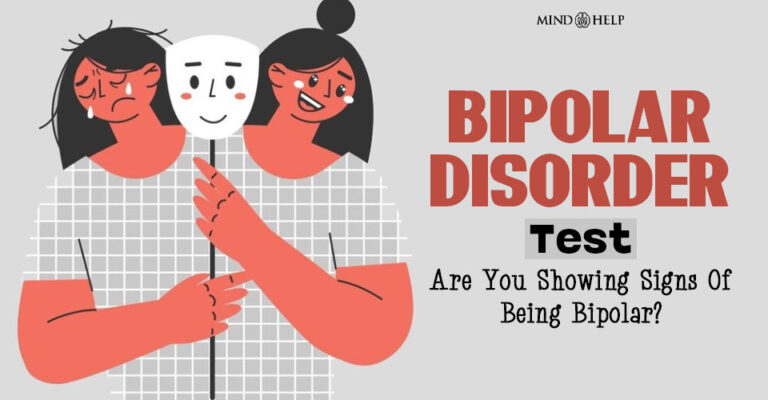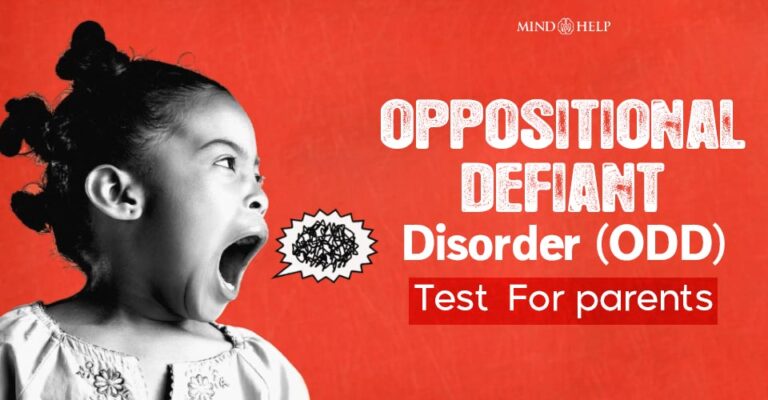Do you have a hard time keeping a lid on your temper? Do you frequently get angry? Do you find it difficult to hold back your grudges? Have you found yourself getting caught up in verbal and physical fights more often than you would like? Take our online anger test and check your anger level.
What Is Anger?
Anger is one of our core human emotions. It often manifests as stress, irritation, and frustration, usually when we believe that we have been wronged or treated unfairly. In many cases, anger can actually be helpful. It allows us to express negative emotions and can even motivate us to resolve conflicts or set boundaries.
However, when anger becomes uncontrollable, excessive or toxic, it can lead to serious, even dangerous issues. It clouds your ability to think clearly and calmly, and even raises your blood pressure to a high extent.
This makes it harder to handle situations in a healthy, constructive way.
Anger is also closely tied to the body’s “fight, flight, or freeze” response—part of the sympathetic nervous system. It’s the body’s way of gearing up to deal with a perceived threat, often pushing us toward a fight response.
Read More About Anger Here
Some of the characteristics of anger are:
- You feel a surge in your energy levels and body temperature.
- There’s a huge spike in your stress hormones, noradrenaline, adrenaline.
- Tense muscles and clenched fists.
- Raised or louder voices.
- Shaking or trembling, accompanied by a rapid heartbeat.
Now onto the assessment for anger issues.
Instructions For Taking Anger Test Online
Below is a list of items that relate to an individual’s anger level. Please read each item carefully, and select options that you find relevant for you.
Please note: This anger test is a self-assessment.
Quiz Summary
0 of 20 Questions completed
Questions:
Information
You have already completed the quiz before. Hence you can not start it again.
Quiz is loading…
You must sign in or sign up to start the quiz.
You must first complete the following:
Results
Results
Your time:
Time has elapsed
You have reached 0 of 0 point(s), (0)
Earned Point(s): 0 of 0, (0)
0 Essay(s) Pending (Possible Point(s): 0)
Categories
- Not categorized 0%
-
Very Low signs of Anger issues
Your present score reveals that you have very low signs of anger issues. As your score reflects that you might seem to keep your temper under your control in most cases and might not express any such angry behavior that can cause harm to you and the people around you. Besides this, your score also indicates that in a few cases, you might find difficulty managing your anger healthily and might find yourself getting annoyed slightly when there is some disturbance in your scheduled plan. Although you might rarely express your anger verbally expressing your grudge and irritability, but these do not lead to any kind of fight with another person. Also, It can be evident from your score that you do not seem to displace your anger to another person and seem to have the ability to manage it by yourself mostly if any unwanted situation does not occur. All of your responses indicate no such significant difficulties that might interfere with and affect badly in your social, occupational, and other areas of functioning in life. However, it should be noted that this is just a basic self-assessment tool, if you think the results do not accurately match your characteristics, then we would encourage you to consult a Psychologist for an accurate result.
-
Low signs of Anger issues
Your present score reveals that you have low signs of anger issues. As your score reflects that you might fail a few times to keep your temper under your control and might express angry behavior slightly that could hurt others. Besides this, your score also indicates that in some cases, you might find difficulty managing your anger healthily and might find yourself getting annoyed in those cases where there is a disturbance in your scheduled plan. Although you might try positively expressing your anger, but sometimes tends to show verbal outburst expressing grudge and irritability, which might also create a chance to get engaged in any kind of fight with another person. Also, It can be evident from your score that you might seem to displace your anger to another person and fails to manage it by yourself in an adequate manner in very few cases. All of your responses indicate a few significant difficulties that might interfere with and affect badly in your social, occupational, and other areas of functioning in life. However, it should be noted that this is just a basic self-assessment tool, if you think the results do not accurately match your characteristics, then we would encourage you to consult a Psychologist for an accurate result.
-
Moderate signs of Anger issues
Your present score reveals that you have moderate signs of anger issues. As your score reflects that you might fail often to keep your temper under your control and might express angry behavior many times that could hurt and harm others badly. Besides this, your score also indicates that in some of the cases, you seem to find difficulties managing your anger healthily and might find yourself getting annoyed in so many cases where there is a disturbance in your scheduled plan. Although you might try sometimes positively expressing your anger, but other times tends to show verbal outburst expressing grudge and irritability, which might also lead you to get engaged in any kind of fight with another person. Also, It can be evident from your score that you might seem to displace your anger to another person and fails to manage it by yourself in an adequate manner in some cases. All of your responses indicate some significant difficulties that might interfere with and affect badly in your social, occupational, and other areas of functioning in life. However, it should be noted that this is just a basic self-assessment tool, if you think the results do not accurately match your characteristics, then we would encourage you to consult a Psychologist for an accurate result.
-
High signs of Anger issues
Your present score reveals that you have high signs of anger issues. As your score reflects that you seem to fail most of the time to keep your temper under your control and strongly express angry behavior that seems to lead to harming others badly. Besides this, your score also indicates that in so many cases, you seem to find difficulties managing your anger healthily and tend to find yourself getting annoyed even where there is a slight disturbance in your scheduled plan. It is evident from your score that you seem to fail to positively express your anger many times, and show strong verbal outbursts expressing grudge and irritability that seem to lead you to get engaged in any kind of fight with another person. Besides this, it can also be shown from your response that you seem to displace your anger to another person in most cases and fails to manage it by yourself. All of your responses indicate strong significant difficulties that might interfere with and affect badly in your social, occupational, and other areas of functioning in life. However, it should be noted that this is just a basic self-assessment tool, if you think the results do not accurately match your characteristics, then we would encourage you to consult a Psychologist for an accurate result.
- Review
- Answered
- Correct
- Incorrect
-
Question 1 of 20
1. Question
-
Question 2 of 20
2. Question
-
Question 3 of 20
3. Question
-
Question 4 of 20
4. Question
-
Question 5 of 20
5. Question
-
Question 6 of 20
6. Question
-
Question 7 of 20
7. Question
-
Question 8 of 20
8. Question
-
Question 9 of 20
9. Question
-
Question 10 of 20
10. Question
-
Question 11 of 20
11. Question
-
Question 12 of 20
12. Question
-
Question 13 of 20
13. Question
-
Question 14 of 20
14. Question
-
Question 15 of 20
15. Question
-
Question 16 of 20
16. Question
-
Question 17 of 20
17. Question
-
Question 18 of 20
18. Question
-
Question 19 of 20
19. Question
-
Question 20 of 20
20. Question
Frequently Asked Questions (FAQs)
1. What are the 3 stages of anger?
The 3 stages of anger are Buildup (Trigger/Onset Stage), Explosion (Peak/Outburst Stage) and Aftermath (Post-Anger Stage).
2. What is the 72 hour rule anger?
The 72 hour rule for anger advocates that you should wait for 72 hours before reacting or confronting the person. This always you to think rationally and cool down before making any important decision.
3. What is Stage 4 of anger?
Stage 4 of anger is rage/fury. This is the most intense and extreme form of anger, where you completely lose control and find it hard to manage your emotions.
More Mental Health Tests
Loading more Tests…
No more Tests found.
Quiz Summary
0 of 20 Questions completed
Questions:
Information
You have already completed the quiz before. Hence you can not start it again.
Quiz is loading…
You must sign in or sign up to start the quiz.
You must first complete the following:
Results
Results
Your time:
Time has elapsed
You have reached 0 of 0 point(s), (0)
Earned Point(s): 0 of 0, (0)
0 Essay(s) Pending (Possible Point(s): 0)
Categories
- Not categorized 0%
-
Very Low signs of Anger issues
Your present score reveals that you have very low signs of anger issues. As your score reflects that you might seem to keep your temper under your control in most cases and might not express any such angry behavior that can cause harm to you and the people around you. Besides this, your score also indicates that in a few cases, you might find difficulty managing your anger healthily and might find yourself getting annoyed slightly when there is some disturbance in your scheduled plan. Although you might rarely express your anger verbally expressing your grudge and irritability, but these do not lead to any kind of fight with another person. Also, It can be evident from your score that you do not seem to displace your anger to another person and seem to have the ability to manage it by yourself mostly if any unwanted situation does not occur. All of your responses indicate no such significant difficulties that might interfere with and affect badly in your social, occupational, and other areas of functioning in life. However, it should be noted that this is just a basic self-assessment tool, if you think the results do not accurately match your characteristics, then we would encourage you to consult a Psychologist for an accurate result.
-
Low signs of Anger issues
Your present score reveals that you have low signs of anger issues. As your score reflects that you might fail a few times to keep your temper under your control and might express angry behavior slightly that could hurt others. Besides this, your score also indicates that in some cases, you might find difficulty managing your anger healthily and might find yourself getting annoyed in those cases where there is a disturbance in your scheduled plan. Although you might try positively expressing your anger, but sometimes tends to show verbal outburst expressing grudge and irritability, which might also create a chance to get engaged in any kind of fight with another person. Also, It can be evident from your score that you might seem to displace your anger to another person and fails to manage it by yourself in an adequate manner in very few cases. All of your responses indicate a few significant difficulties that might interfere with and affect badly in your social, occupational, and other areas of functioning in life. However, it should be noted that this is just a basic self-assessment tool, if you think the results do not accurately match your characteristics, then we would encourage you to consult a Psychologist for an accurate result.
-
Moderate signs of Anger issues
Your present score reveals that you have moderate signs of anger issues. As your score reflects that you might fail often to keep your temper under your control and might express angry behavior many times that could hurt and harm others badly. Besides this, your score also indicates that in some of the cases, you seem to find difficulties managing your anger healthily and might find yourself getting annoyed in so many cases where there is a disturbance in your scheduled plan. Although you might try sometimes positively expressing your anger, but other times tends to show verbal outburst expressing grudge and irritability, which might also lead you to get engaged in any kind of fight with another person. Also, It can be evident from your score that you might seem to displace your anger to another person and fails to manage it by yourself in an adequate manner in some cases. All of your responses indicate some significant difficulties that might interfere with and affect badly in your social, occupational, and other areas of functioning in life. However, it should be noted that this is just a basic self-assessment tool, if you think the results do not accurately match your characteristics, then we would encourage you to consult a Psychologist for an accurate result.
-
High signs of Anger issues
Your present score reveals that you have high signs of anger issues. As your score reflects that you seem to fail most of the time to keep your temper under your control and strongly express angry behavior that seems to lead to harming others badly. Besides this, your score also indicates that in so many cases, you seem to find difficulties managing your anger healthily and tend to find yourself getting annoyed even where there is a slight disturbance in your scheduled plan. It is evident from your score that you seem to fail to positively express your anger many times, and show strong verbal outbursts expressing grudge and irritability that seem to lead you to get engaged in any kind of fight with another person. Besides this, it can also be shown from your response that you seem to displace your anger to another person in most cases and fails to manage it by yourself. All of your responses indicate strong significant difficulties that might interfere with and affect badly in your social, occupational, and other areas of functioning in life. However, it should be noted that this is just a basic self-assessment tool, if you think the results do not accurately match your characteristics, then we would encourage you to consult a Psychologist for an accurate result.
- Review
- Answered
- Correct
- Incorrect
-
Question 1 of 20
1. Question
-
Question 2 of 20
2. Question
-
Question 3 of 20
3. Question
-
Question 4 of 20
4. Question
-
Question 5 of 20
5. Question
-
Question 6 of 20
6. Question
-
Question 7 of 20
7. Question
-
Question 8 of 20
8. Question
-
Question 9 of 20
9. Question
-
Question 10 of 20
10. Question
-
Question 11 of 20
11. Question
-
Question 12 of 20
12. Question
-
Question 13 of 20
13. Question
-
Question 14 of 20
14. Question
-
Question 15 of 20
15. Question
-
Question 16 of 20
16. Question
-
Question 17 of 20
17. Question
-
Question 18 of 20
18. Question
-
Question 19 of 20
19. Question
-
Question 20 of 20
20. Question



